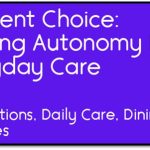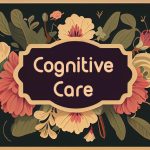A Bold Statement
“Montessori doesn’t focus on managing behaviors — it shapes the conditions around them.” At first glance, the statement sounds bold—some may even say unrealistic. After all, anyone who works in dementia care knows this reality: there are moments when behaviors must be managed. For safety, dignity, immediacy. So why say this at all? Because this perspective invites…














